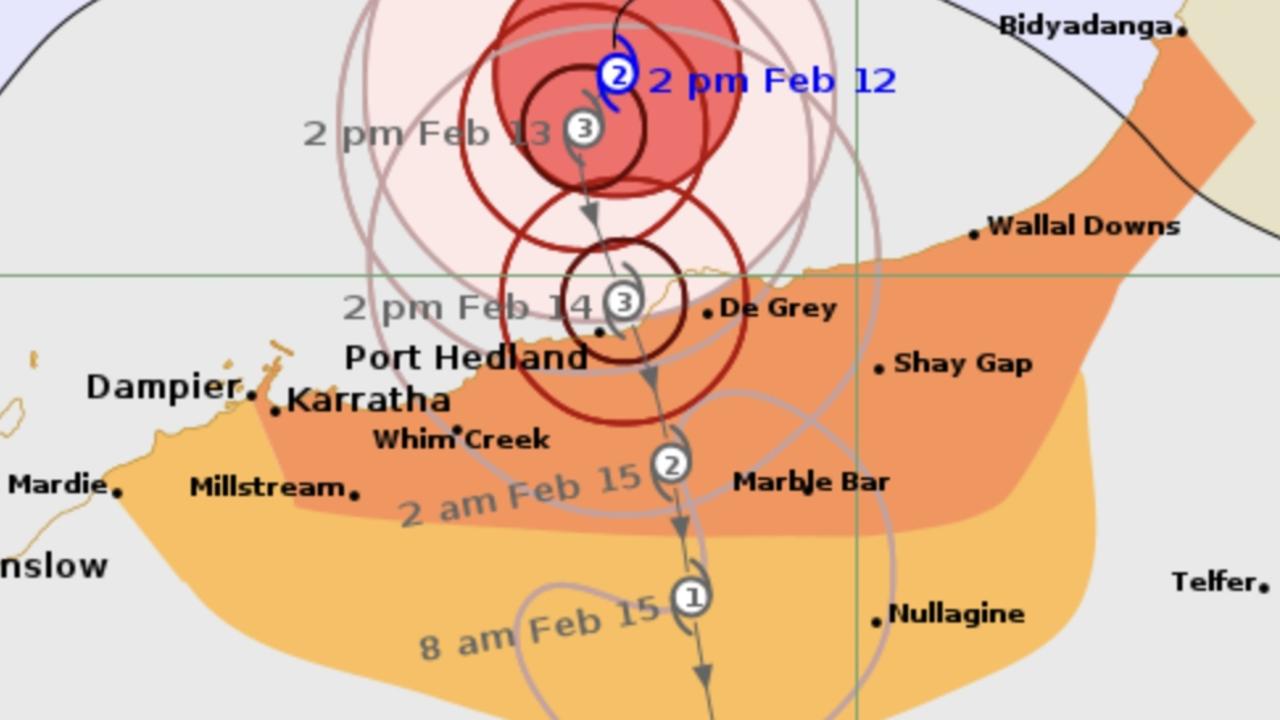Caitlin Reese Cruz: Inquest into three-year-old girl’s death from flu begins
A three-year-old girl who died from heart complications caused by the flu was forced to wait for a test because a machine was “out of charge”.
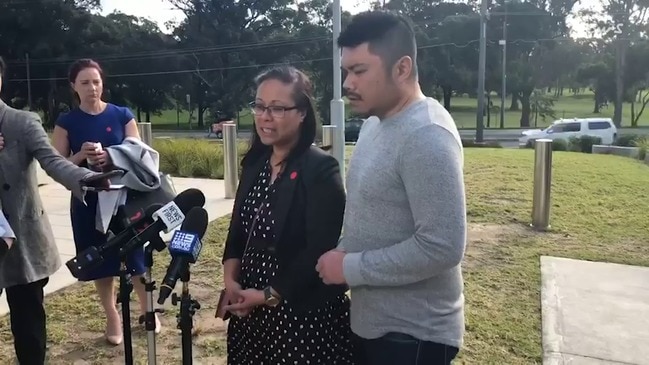
A Sydney GP who helped revive a three-year-old girl the day before she tragically died from the flu in 2016 has told an inquest she was “probably the sickest child I’ve ever seen”.
But medical staff at one of the city’s biggest children’s hospitals failed to recognise the life-threatening condition of Caitlin Reese Cruz, counsel assisting the inquest Maria Gerace told the Lidcombe Coroners Court on Monday.
She said a series of systemic errors at The Children’s Hospital at Westmead, including poor record keeping and lack of equipment, might have robbed Caitlin of a chance of survival.
The girl’s parents, Marie and Mitch Cruz, told media on Monday they hoped the findings from this inquest would ensure other children don’t “fall through the cracks”.
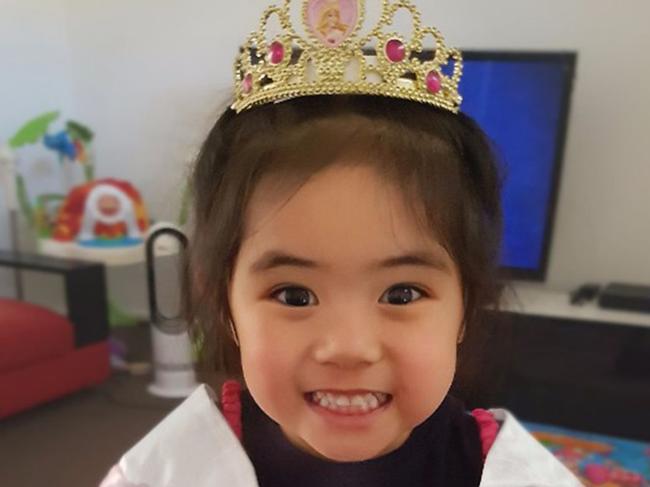
“We’ve been waiting for almost four years ... there’s been a lot of people who’ve been fighting to get some answers. And hopefully this will shed a light on what’s happened and where faults and any other issues have arised,” Ms Cruz said.
“We’re not doing this just for Caitlin, we’re doing this for her little sister who will never know her. But we’re also doing this for families who hopefully may not (have) to experience the same heartache and loss that we have.”
Caitlin had been rushed to the hospital about 2.20pm on the afternoon of October 22, 2016 after she collapsed in her father’s lap at a GP clinic in Rhodes.
Her lips were blue, she was barely breathing, her pulse and blood pressure were non-discernible and she didn’t move when a cannula was inserted into her arm, doctors at the clinic observed.
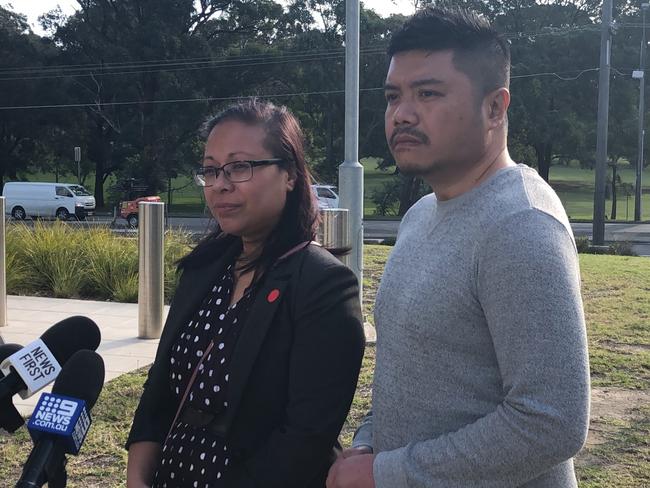
Despite a brief recovery, less than 24 hours later at 11.15am she was pronounced dead in hospital, with a post-mortem revealing her heart was inflamed and surrounded by fluid caused by a viral influenza B infection.
Ms Gerace told the court on the first day of the week-long inquest Caitlin’s condition rapidly deteriorated after she was finally admitted to the intensive paediatric care unit on the morning of October 23.
That followed hours of “inadequate” care at the hospital, with reports passed between medical staff that did not paint a “clear and complete picture” of her symptoms, nor the “urgency and concern” of her treating GP that day, Ms Gerace said.
Caitlin had collapsed for a second time while waiting for treatment, and had displayed seizure like symptoms.
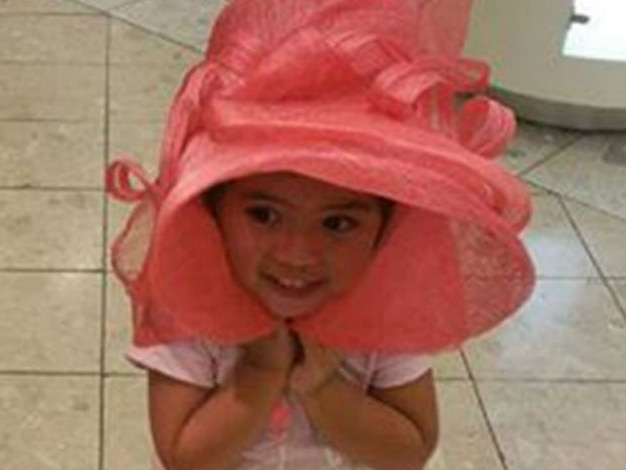
Ms Gerace said among the concerning failures in care was Caitlin waiting hours to receive an ECG – a test that detects heart issues – as the machine in the hospital’s emergency ward was “out of charge”.
When she was later admitted into a ward a doctor was unable to find a hammer to test her reflexes because equipment had been moved to another part of the hospital.
While in the ward a junior doctor reviewed an ECG taken of the girl’s heart but failed to interpret the results in written records. A senior physician did not see the results for nearly 12 hours.
The young girl from Lidcombe had fallen ill with a fever on October 18. Over the next four days she was tired, complained of stomach pains and had little to no appetite.
A worsening in Caitlin’s condition led her concerned father Mitch Cruz to book her into My Health Medical Centre in Rhodes on October 22, where she collapsed in the waiting room.
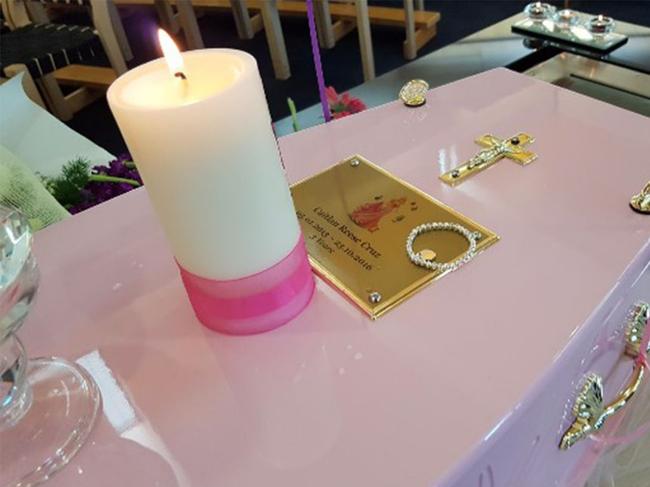
One of the doctors who worked to revive her at the clinic told the court Caitlin was “probably the sickest child I’ve ever seen in an emergency in general practice”.
A tearful Dr Sumeena Qidwai said she screamed for her receptionist to call an ambulance after observing Caitlin to be “floppy and blue” and appearing to be in imminent cardio-pulmonary arrest.
“I couldn’t feel a peripheral pulse and I was unable to hear her heart rate,” she said.
She described Caitlin as being almost completely non-responsive and believed she was in “imminent danger of death”.
“I’ve never done a cannula where a child didn’t even flinch. She did not flinch,” she said.
Dr Faisal Qidwai told the court Caitlin did not appear to be breathing, and he fixed an oxygen mask to her, turning the flow up high.
When Caitlin left for hospital she had made somewhat of a recovery, now able to breathe on her own and responding to conversation, he said.

However, Dr Sumeena Qidwai told the court she did not think it was appropriate for her to write a referral letter to give to attending paramedics due to the urgency of the situation.
She directly addressed Caitlin’s parents, saying she hoped the inquest could help them “heal”.
Paramedic Julia Hickman gave evidence on Monday that when she and a colleague arrived at the Rhodes clinic they found Caitlin awake, saying Sumeena Qidwai told her the girl had been unresponsive with blue lips but had “come up well”.
“As it was I was looking at a child that was sitting up, breathing, talking with no blue lips,” she said.
Although concerned by what she had been told, Ms Hickman said the GPs did not mention the period when Caitlin’s pulse was not detectable.
If she had the job would have been immediately escalated, she said: “that’s an arrest, so a paediatric arrest requires intensive care.”
The inquest continues before Deputy State Coroner Derek Lee.


